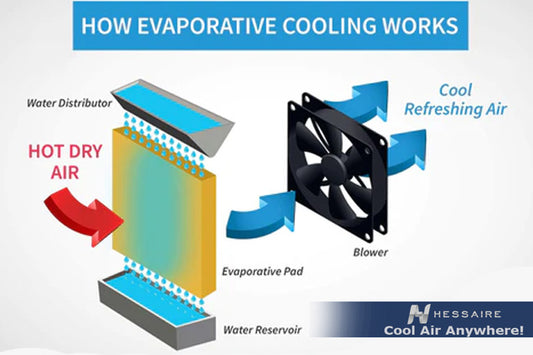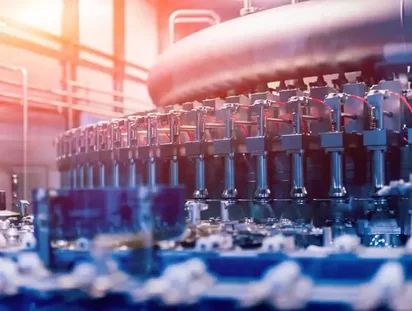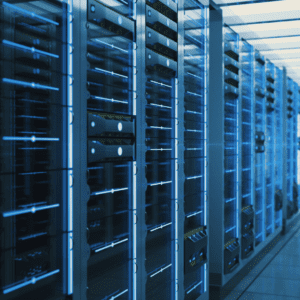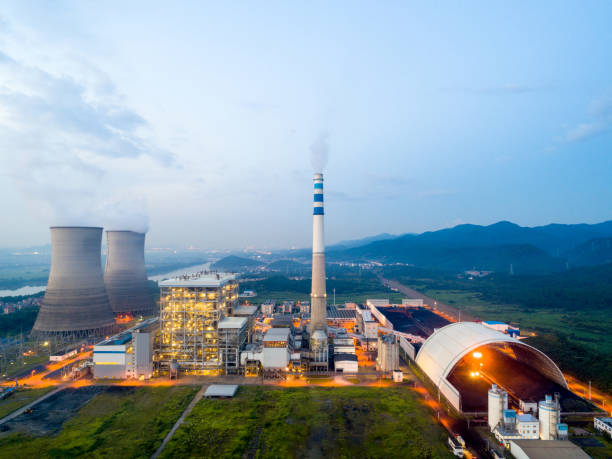Cooling Solutions
Critical to Emission-Free Industrial Operations
Cooling plays a vital role in supporting health, well-being, and environmental sustainability. It preserves the safety of vaccines and the freshness of food, provides comfortable living and working environments, and is essential to industrial and transportation systems. However, cooling systems often consume significant energy and contribute to pollution, driven by emissions from electricity usage and the gases in refrigerants and insulation foams.
Cooling plays a crucial role in global health, well-being, and environmental sustainability. It safeguards vaccines, keeps food fresh, provides comfortable living and working spaces, and underpins industrial and transportation systems. However, cooling contributes to over 7% of global greenhouse gas (GHG) emissions—a figure that is rapidly rising. Addressing these emissions while meeting the growing demand for cooling in a sustainable way is an urgent priority.
Our Expertise and Approach
We offer impartial guidance and specialized knowledge to governments, cities, foundations, development banks, and corporations. Our work focuses on reducing the environmental impact of cooling while meeting the increasing need for it. Our services range from policy and strategy development to large-scale financing and district cooling initiatives.
Net Zero Cooling Strategies and Action Plans
We provide strategic advice and planning for organizations worldwide to transition to Net Zero cooling. For instance, we spearheaded the first global strategy and action plan to achieve zero GHG emissions from cooling, collaborating with COP Champions, Cool Coalition, Oxford University, and the Clean Cooling Collaborative.
Program Development and Implementation
We collaborate with various global organizations to design and implement sustainable cooling programs. Notably, we partnered with the Clean Cooling Collaborative to design and manage a $10 million cooling efficiency finance initiative spanning Asia, Africa, and Latin America. Our contributions include producing knowledge resources and thought leadership reports on topics like cooling-as-a-service and Net Zero cold chains.
District Cooling Solutions
We support district cooling projects through advisory and feasibility studies. For example, under the UN Environment District Energy in Cities Initiative, we conducted pre-feasibility studies for district cooling potential in two locations in Thane.
Corporate and Policy Advisory Services
We deliver independent advice to businesses and policymakers. For example, we provided insights to the European Fluoro Carbon Technical Committee, the European Commission, and other government entities, evaluating the impact of the F-gas regulation quota allocation mechanism on regulated markets.
Strategic Planning and Project Development
Achieving Net Zero cooling requires rethinking traditional approaches to cooling buildings. Our experts emphasize reducing mechanical cooling and heating demand as a starting point for Net Zero strategies. We advocate for integrated cooling and heating solutions that incorporate energy-smart practices such as renewable energy, thermal storage, peak demand management, and smart metering. These approaches help optimize energy use while aligning procurement policies with return on investment, life cycle analysis, and circular economy principles.
Integrated and Sustainable Cooling Systems
Our multidisciplinary teams develop system-based cooling solutions that prioritize efficiency, safety, and sustainability. We consider factors like refrigerant selection, component reuse or recycling, and long-term performance, ensuring that systems are designed to deliver optimal results throughout their lifecycle. This includes retrofitting cooling and heating systems into existing buildings to improve energy performance.
Innovative Emission-Free Cooling Technologies
Innovative cooling solutions like Liquid Cooling, Air-to-Water Heat Exchangers, and Evaporative Cooling are transforming industries by reducing energy consumption and enhancing performance.
Liquid Cooling
 Liquid cooling is a highly effective method that significantly lowers system temperatures, often by as much as 40%, compared to traditional air-cooling methods. This substantial reduction in operating temperatures not only improves the overall efficiency and performance of the system but also contributes to prolonged component lifespan by minimizing thermal stress. Additionally, the enhanced cooling efficiency achieved through this method leads to reduced energy consumption, which translates into lower operational costs and a smaller carbon footprint. Liquid cooling is particularly beneficial for high-performance systems, such as data centers, advanced computing devices, and industrial machinery, where maintaining optimal temperatures is critical for reliable and efficient operation.
Liquid cooling is a highly effective method that significantly lowers system temperatures, often by as much as 40%, compared to traditional air-cooling methods. This substantial reduction in operating temperatures not only improves the overall efficiency and performance of the system but also contributes to prolonged component lifespan by minimizing thermal stress. Additionally, the enhanced cooling efficiency achieved through this method leads to reduced energy consumption, which translates into lower operational costs and a smaller carbon footprint. Liquid cooling is particularly beneficial for high-performance systems, such as data centers, advanced computing devices, and industrial machinery, where maintaining optimal temperatures is critical for reliable and efficient operation.Air to Water Heat Exchangers
Air-to-water heat exchangers are advanced systems designed for efficient heat transfer between air and water, making them ideal for a wide range of industrial and commercial applications. By leveraging the thermal conductivity of water, these systems provide superior cooling performance compared to air-based systems alone. Moreover, they align seamlessly with zero-emission goals by reducing reliance on energy-intensive cooling methods and enabling the integration of renewable energy sources. Their ability to optimize energy use and minimize environmental impact makes air-to-water heat exchangers a sustainable and forward-thinking choice for achieving both operational efficiency and environmental responsibility.
Evaporating Cooling

Evaporative cooling is an energy-efficient method that reduces temperatures by harnessing the natural process of water evaporation. This technique works by drawing warm air through water-saturated media, where the air absorbs moisture and releases heat, resulting in a significant temperature drop. By relying on water evaporation rather than traditional energy-intensive cooling mechanisms, evaporative cooling minimizes electricity consumption and lowers operational costs. It is particularly effective in hot and dry climates, where its ability to provide natural and sustainable cooling aligns with energy conservation and environmental sustainability goals.
Key Sectors from Benefiting from Emission-Free Cooling Technologies
Manufacturing

The manufacturing sector reaps significant benefits from advanced, emission-free cooling technologies. These solutions are instrumental in optimizing the performance and reliability of heavy machinery, ensuring efficient operation and reducing the risk of unexpected downtime. By integrating these eco-friendly cooling systems, manufacturers not only enhance productivity but also contribute to sustainable operations by minimizing carbon emissions and energy consumption. This approach supports greener industrial processes while maintaining high levels of operational efficiency.
Data Centers

Cooling technologies are vital in data centers, where they ensure the efficient operation of servers by preventing overheating and maintaining optimal performance. Modern emission-free cooling systems, such as liquid cooling and advanced air-to-water heat exchangers, provide effective temperature regulation while minimizing energy consumption and carbon emissions. By adopting these sustainable cooling solutions, data centers can meet the growing demand for computational power while aligning with environmental goals and reducing their ecological footprint.
Power Generations

Efficient cooling systems are critical in power generation, playing a pivotal role in maintaining energy-efficient operations within power plants. By effectively regulating temperatures in turbines, generators, and other critical components, these cooling technologies enhance operational reliability and efficiency. Modern emission-free cooling methods further contribute to reducing greenhouse gas emissions, supporting the transition to cleaner energy production. This makes them an indispensable component in the pursuit of sustainable and environmentally responsible power generation.
Emission-Free Solutions Powered By VEM
As industries continue to adopt innovative cooling technologies for emission-free systems, VEM remains at the forefront by providing high-efficiency motors that integrate seamlessly with these advanced solutions.
Lower Energy Consumption
VEM’s advanced motor technologies are designed to minimize energy usage, helping industries significantly reduce their carbon footprint while cutting operational costs. By optimizing energy efficiency, these motors support sustainable practices without compromising performance.
Reliable Performance
Engineered for durability and high efficiency, VEM motors deliver consistent, reliable operation, making them ideal for emission-free systems. Their robust design ensures smooth, uninterrupted performance, even in demanding industrial applications, reinforcing sustainability without sacrificing productivity.
Partner with VEM to optimize your systems with energy-efficient solutions for a sustainable future.
Contact us at sg@vem-group.com for more details.
Source: CarbonTrust




